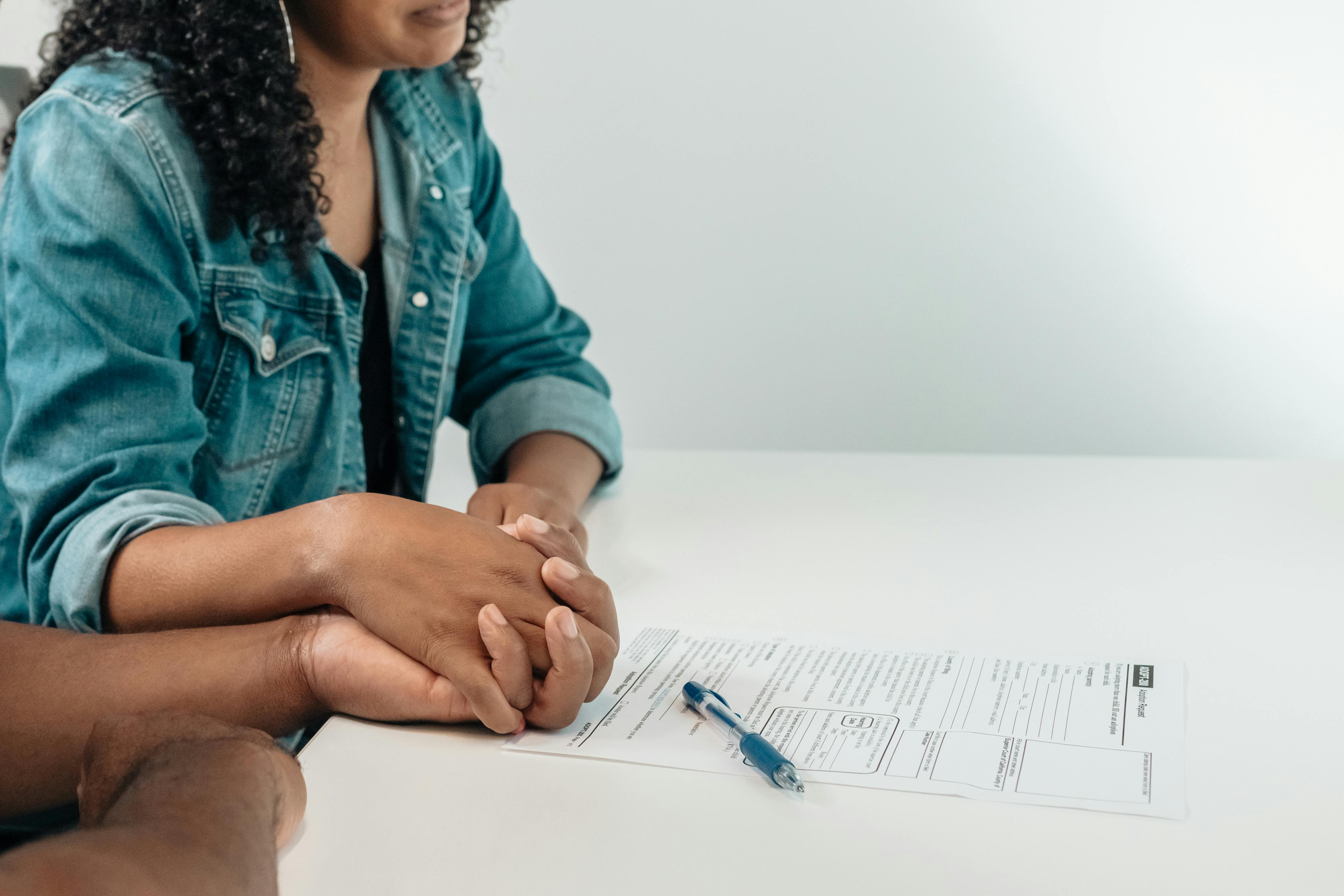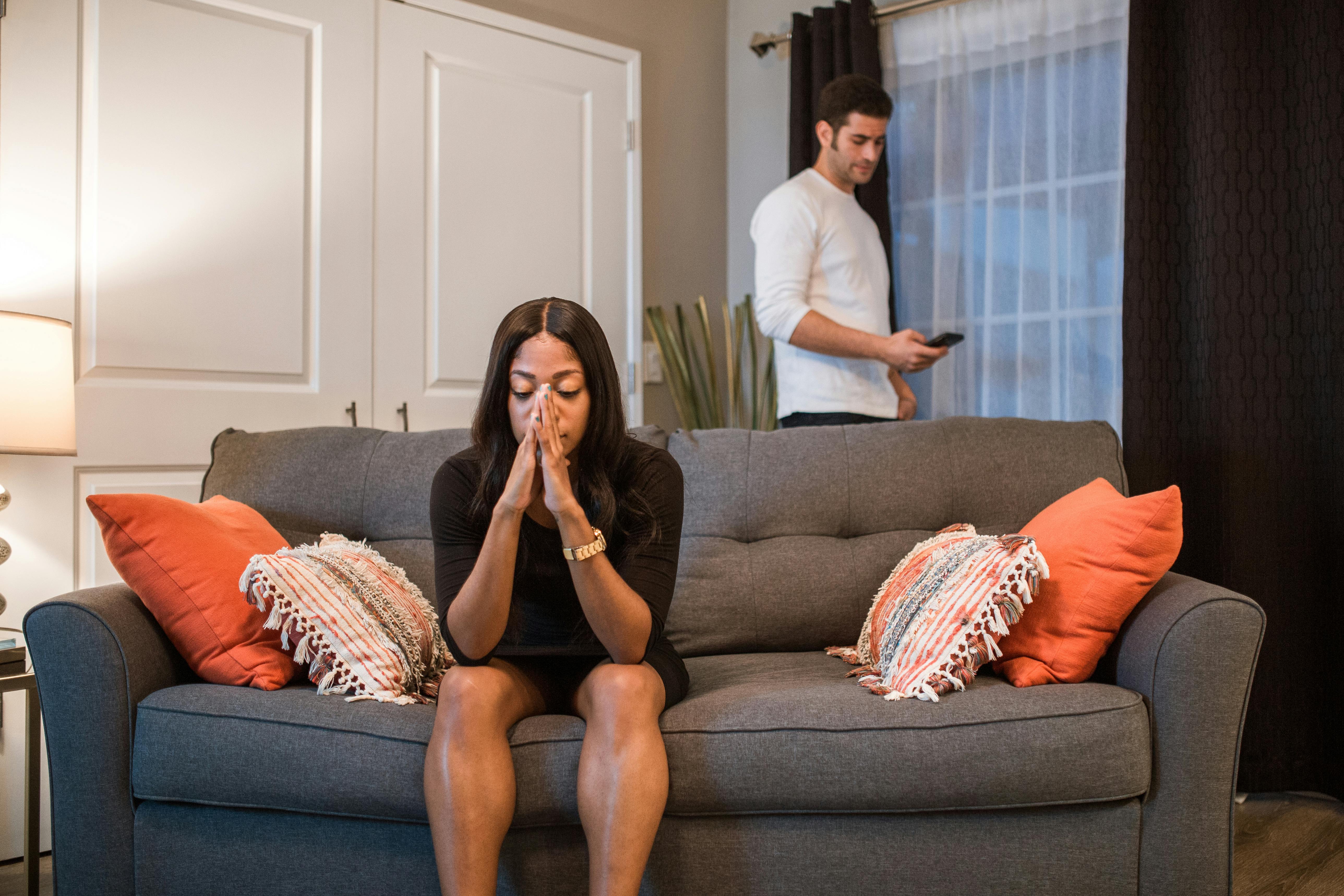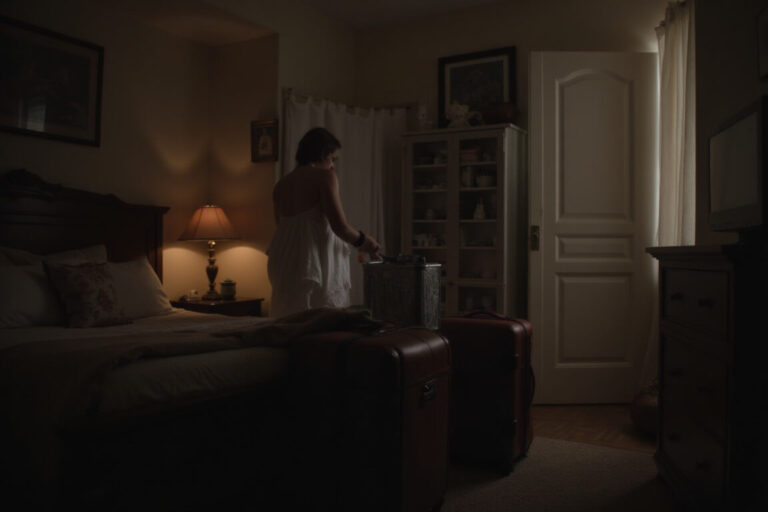Recognizing when a woman is emotionally finished with a relationship can be challenging. Understanding the subtle and overt signs can help you navigate difficult moments and make informed decisions.
Relationships evolve, but when emotional disengagement sets in, it affects communication, intimacy, and connection. This article explores key indicators to help you identify if she is emotionally done.

Photo by KoolShooters
Changes in Communication Patterns
One of the first signs that a woman may be emotionally withdrawing is a noticeable decline in communication. This can manifest as avoiding phone calls, delayed responses, or giving brief, indifferent answers.
Consistent engagement is a foundation for connection. When she stops sharing her thoughts or feelings, it suggests a growing barrier. Pay attention to how often she initiates conversations and whether she seems invested in meaningful exchanges.
To address this, try opening conversations gently and observe her willingness to engage. If efforts to reconnect are met with indifference, it may signal emotional detachment.
Growing Emotional Distance
Emotional distance often shows through superficial interactions and a lack of vulnerability. Conversations become shallow, and the warmth or enthusiasm that once existed fades.
Body language also reveals emotional withdrawal. She might avoid eye contact, cross her arms, or physically distance herself during interactions.
Understanding these cues can help you assess her emotional state. Instead of pressuring her, create a safe space where she feels comfortable opening up. Sometimes, emotional distance stems from unresolved issues needing attention.
Decline in Physical Intimacy
A significant drop in physical closeness often reflects deeper emotional disconnection. When intimacy diminishes, it can indicate that the bond is weakening.
Physical affection extends beyond sex; it includes holding hands, hugging, or casual touches. Notice if these gestures become rare or absent.
To address this, communicate openly about your feelings and ask about hers. Sometimes, external stressors affect intimacy, but persistent avoidance points to emotional withdrawal.
Increased Time Spent on Outside Activities
When she frequently chooses friends, hobbies, or solo activities over spending time together, it may signal avoidance of the relationship.
Engagement in external activities is healthy, but balance is essential. Excessive time away can mean she’s seeking fulfillment elsewhere or distancing herself emotionally.
Observe if she shares details about these activities or keeps them separate. If she seems more invested in outside interests than in nurturing your connection, it’s a warning sign.
Reduction in Support and Empathy
Emotional support and empathy are key pillars in a relationship. When these qualities decline, it shows a shift in priorities.
She may stop offering encouragement during tough times or disregard your feelings. This lack of emotional presence can deeply impact your connection.
Respond by expressing your needs calmly and observing her reaction. Genuine care involves mutual support, and lack of it suggests emotional disengagement.

Photo by Kindel Media
Disinterest in Planning for the Future
When she avoids or dismisses conversations about shared goals or long-term plans, it can reveal a lack of commitment.
Future planning involves trust and investment. If she no longer includes you in her vision or seems indifferent, it signals emotional withdrawal.
Try discussing smaller, achievable plans to gauge her willingness to engage. If avoidance persists, it may be time to reconsider the relationship’s direction.
Heightened Criticism and Nitpicking
Increased criticism often masks deeper dissatisfaction. She may focus on minor flaws or past mistakes as a defense mechanism.
This behavior can erode intimacy and create tension. Understanding that criticism may stem from frustration rather than malice helps you respond constructively.
Address this by calmly discussing how criticism affects you and encouraging open dialogue about underlying concerns.
Decreased Effort in Nurturing the Relationship
A noticeable drop in effort, such as not initiating plans or neglecting small gestures, reflects a shift in priorities.
Relationships require continuous nurturing. When she no longer invests time or energy, it indicates emotional disengagement.
Communicating your observations and asking her perspective can reveal whether this change is temporary or a sign of deeper issues.
Avoidance of Conflict and Difficult Conversations
Healthy relationships involve addressing conflicts. When she shuts down, leaves arguments unresolved, or avoids discussing problems, it signals disinterest in working through challenges.
Conflict avoidance can lead to emotional disconnection. It prevents growth and understanding, causing issues to fester.
Encourage open communication by creating a judgment-free environment. If avoidance continues, it may reflect that she no longer sees value in the relationship.
Emotional Outbursts as a Sign of Struggle
Some women express frustration through intense emotional reactions. These outbursts can be a way of releasing pent-up feelings or signaling distress.
While not a healthy communication style, recognizing these moments as cries for attention can prompt deeper conversations.
Respond with patience and seek to understand the root causes rather than reacting defensively.
Signs of Declining Respect
Respect is fundamental. When she dismisses your opinions, belittles accomplishments, or ignores boundaries, it shows a lack of regard.
Disrespect damages trust and signals emotional withdrawal. It often escalates conflicts and undermines connection.
Address disrespect promptly by expressing how it affects you and setting clear boundaries for mutual respect.

Photo by RDNE Stock project
Disinterest in Discussing Long-Term Commitments
Repeatedly avoiding or dismissing talks about marriage, living together, or shared responsibilities indicates she may not see a future together.
Engaging in these conversations requires openness and vulnerability. Reluctance often reflects emotional detachment.
Gently explore her feelings about commitment to gain clarity and assess whether your relationship goals align.
Seeking Emotional Support Outside the Relationship
Turning to friends, family, or others for emotional support instead of you signals a shift in emotional reliance.
This is natural to some extent, but when it becomes the primary source, it suggests she no longer feels connected to you.
Encourage openness and strive to rebuild trust so she feels comfortable sharing her emotions with you again.
Recognizing These Signs Early
Identifying these behaviors early helps address problems before they become irreversible. Awareness allows for proactive steps such as seeking counseling or improving communication.
Ignoring signs can lead to further emotional distance and resentment.
Taking responsibility for your part and encouraging honest dialogue promotes healing and growth.
Finding Support and Healing
Relationships can be complex, but professional support from therapists or counselors offers valuable guidance.
Healing involves patience and commitment from both partners. If separation becomes necessary, focusing on self-growth and reflection is crucial.
Remember that recognizing emotional detachment is the first step toward healthier relationships.
Engaging Examples of Emotional Disengagement
Mark noticed that Sarah, his longtime girlfriend, stopped answering his calls promptly. Conversations became brief and superficial, and she declined invitations to spend weekends together. Instead, she spent most evenings with her friends or immersed in new hobbies, rarely sharing details.
Despite his efforts to reconnect, Sarah avoided discussing their future, and their physical intimacy declined significantly. Mark realized that her increasing criticism over small mistakes was not just frustration but a sign of deeper emotional withdrawal. After a heartfelt conversation, they decided to seek counseling, which helped them address underlying issues and rebuild trust.
In another case, Jenna found herself emotionally distant from her partner, David. She often avoided conflict and stopped sharing her feelings, causing David to feel isolated. Their relationship suffered as Jenna sought emotional support from close friends instead of David. Recognizing these patterns, they agreed to take a break and individually worked on their emotional health.
Both stories highlight how identifying emotional disengagement can lead to meaningful conversations, healing, or respectful parting when necessary.


